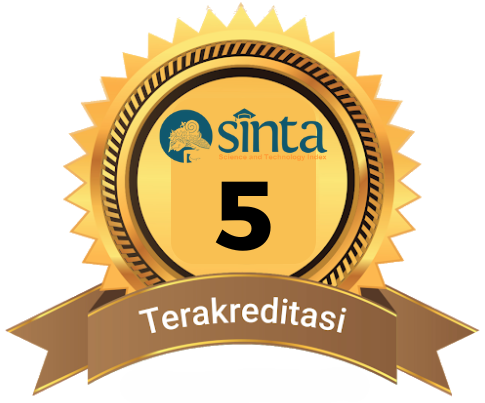EKSPRESI: Indonesian Art Journal is a reviewed journal published by Institut Seni Indonesia Yogyakarta. This explains the ethics of all parties involved in the process of declaring an article published in this journal. It includes writers, Chief Editor, Editorial Board, reviewers, and publishers.
The publication of a scientific article in a reviewed EKSPRESI: Indonesian Art Journal is an important building block in the development of a coherent and recognized network of knowledge. It is a direct reflection of the quality of the work of the authors and the support agencies. A reviewed article is an article that has passed the writing stage following the rules of good scientific writing. Therefore, it is important to agree on standards of ethical behavior for all parties involved in the publishing process, namely: authors, journal editors, reviewers, layout, financial manager, publishers, and the public.
Jurusan Etnomusikologi of Institut Seni Indonesia Yogyakarta as the publisher of EKSPRESI: Indonesian Art Journal takes the task of maintaining all stages of publishing very seriously and responsibly. Besides, Editorial will help if necessary communication with other journals and/or publishers.
Publication Decision
EKSPRESI: Indonesian Art Journal’s Editors are responsible for deciding which articles to publish will be submitted. Editors may refer to the policies of the journal's editorial board and are limited by applicable legal provisions, such as defamation, copyright infringement, and plagiarism. Editors may confer with other editors or peer partners in making these decisions.
Aspects of Justice
Editors at all times evaluate scientific publication manuscripts for the intellectual content of the authors regardless of the author's race, gender, sexual orientation, religious beliefs, ethnicity, nationality, or political views.
Confidentiality
Editors and any editorial staff are not allowed to disclose any information about the sent manuscript to anyone other than authors, reviewers, prospective reviewers, the editorial board, and publishers.
Disclosure and Conflicts of Interest
Draft manuscripts that have been submitted and are not published in a published edition, may not be used in the editor's research without the written consent of the author.
Duties of a reviewer
Contribution to Editorial Decisions
The reviewers assist the editors in making editorial decisions and can assist writers in improving the quality of draft manuscripts through editors.
Time
Each selected reviewer who feels he does not meet the requirements/interest to review the draft manuscript or does not have enough time to review it must immediately notify the editor and withdraw from the review process.
Confidentiality
Any draft manuscripts received for review must be treated as confidential documents. Draft manuscripts may not be shared or discussed with others unless authorized by the editor.
Standard of Objectivity
Reviews must be conducted objectively. Personal criticism from the author is not appropriate. Reviewers must state their views clearly with supporting arguments.
Source Recognition
Reviewers should identify relevant published works that have not been cited by the authors. Statements that the previously reported observations, derivations, or arguments must be accompanied by relevant citations. The reviewer should also state to the editor if there is a substantial similarity or overlap between the draft manuscripts being reviewed and any other articles in the review process or those that have been published.
Disclosure and Conflicts of Interest
Information or ideas obtained in the review process must be kept confidential and not used for personal gain. Reviewers should reject texts in which they have a conflict of interest as a result of competition, collaboration, or other relationships or connections with any of the authors, companies, or institutions with which the draft text is associated.
Author's Duty
Reporting Standards
Scientific publication manuscripts must present accurate research reports. The supporting data on which the research is based should be included in its entirety. A draft manuscript must contain sufficient detail and references to be quoted by others. Reporting fraud or deliberately providing inaccurate information is unethical and unacceptable behavior.
Data Access
Authors are asked to provide access to raw data related to the draft manuscript to the editorial, in any form.
Originality and Plagiarism
Authors must ensure that they have written completely original works, and if the authors use the writings and/or words of other researchers, it is expected that they have been cited correctly following good scientific writing rules.
Multiple, Redundant, and Concurrent Publications
An author may not publish a draft manuscript describing the essence of the same research in more than one journal. It is unethical and unacceptable to submit a draft of the same manuscript for more than one journal at the same time.
Source Recognition
Proper recognition of the work of others must always be given. Authors must cite publications that have been influential in determining the work they report on.
List of draft writers
Authors should be limited to those who have contributed significantly to the conception, design, implementation or interpretation of the reported research. Everyone who has made a significant contribution must be registered as a co-author. Other people or parties who have participated in certain substantive aspects of the research project, must be recognized or registered as contributors. The correspondence writer must ensure that all suitable authors are listed in the draft manuscript that there are no non-conformists, and that all authors have viewed and approved the final version of the manuscript and have agreed to the publication process.
Disclosure and Conflicts of Interest
All authors must disclose in their text any substantive or financial conflicts of interest that may be construed to affect the results or interpretation of their draft text. All sources of financial support for the project should be disclosed.
Fundamental Errors in Published Works
If significant errors or inaccuracies in the work are published, the author is obliged to immediately notify/report to the journal editor or publisher and cooperate with the editor to retract or correct the draft manuscript.







